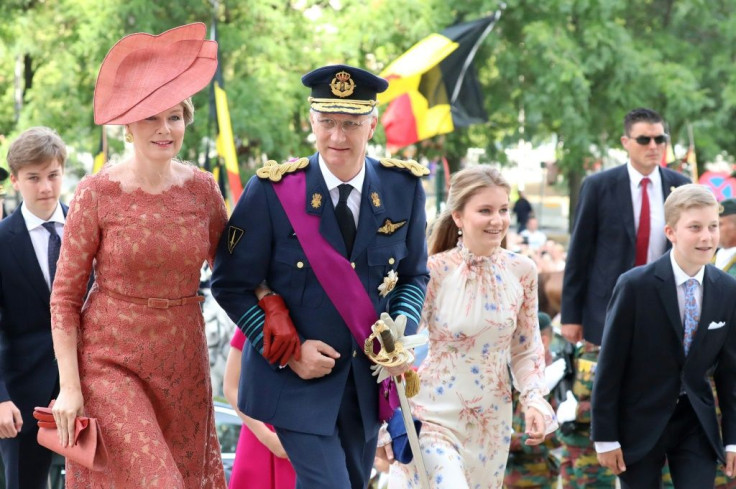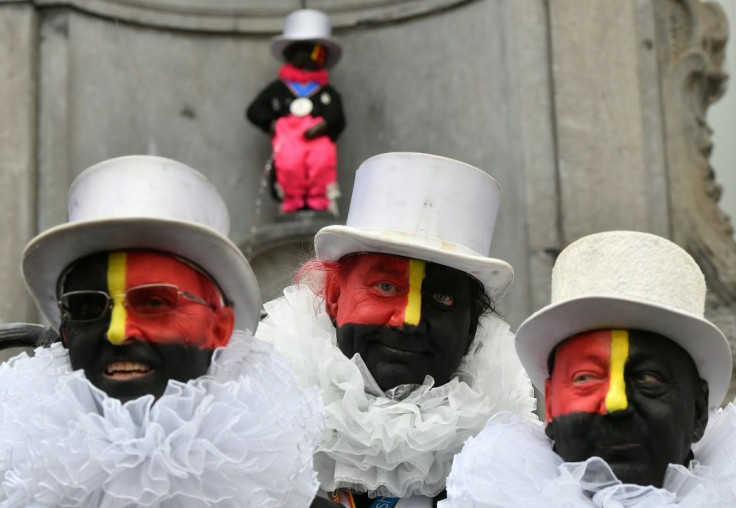No Government? No Problem, Say Belgians

For the past year Belgium has had no permanent government, and the kingdom's citizens don't seem to mind.
Despite months of talks, party bigwigs appear unable to untangle the Gordian Knot.
How can you form a coalition to rule a Dutch-speaking north that votes solidly conservative and a left-leaning French-speaking south?
In some countries this might be a national crisis, but Belgians seem hardly bothered, used to living in a land that is ungovernable, but where citizens somehow just get on with life.
"Nothing unusual". "We are used to it". "We see no difference," passers-by told AFP reporters in central Brussels, not far from the seat of the Belgian federal state, rudderless since December 2018.
"It's 'Belgitude'," smiled Odile, a costume designer, using a term that captures Belgians' infinite capacity to shrug off the absurdities of their complex country.
"With or without a government, there is social peace," shrugged Reda, a Belgian-Moroccan job-seeker.
Indeed, the crisis days of 2010 to 2011 -- when Belgium went 541 days without a government and the linguistic divide was so deep that the future of the county seemed in question -- seem distant.
The latest adventure in caretaker government began on December 18, 2018 when then prime minister Charles Michel threw in the towel after the Flemish nationalist N-VA -- Belgium's biggest party -- quit his coalition over migration policy.
Since then, a centre-right group with no parliamentary majority has managed day-to-day business, and after Michel took up a top EU job, Belgium got its first female prime minister, little-known Sophie Wilmes.
General elections last May only made the situation more complex, with big breakthroughs by anti-establishment parties: the far-right Vlaams Belang in Dutch-speaking Flanders and the far-left PTB and Greens in French-speaking areas.
With the centre squeezed, the near impossible task has been to form a government that includes both the Flemish conservative NV-A and the leftist and French-speaking Socialists.
Nearly 200 days after the vote, that prospect is as far off as ever.
"Strong Flemish toothpaste will be needed to wash that taste out of your mouth," N-VA boss Bart De Wever chided other Flemish parties after they tried and failed to form a more left-leaning government without him.

With no governing majority, it is impossible for the executive to pass a new budget and the public deficit is expected to hit around 11 billion euros in 2020, in violation of EU rules.
Many powers in Belgium are devolved to the regions, but most big-ticket items remain in the hands of the federal government including pensions, justice, defence and asylum policy.
Some observers have started to wonder how long short-term thinking will last and whether bigger questions need asking, given the ever more divergent aspirations of the Flemish and the French-speakers.
"There are no discussions between the north and south of the country. We have to prepare a meal and the fridge is empty," said French-speaking constitutional expert Marc Uyttendaele, who warned of a crisis not seen in decades.
But for Flemish political scientist Dave Sinardet, the real "existential crisis" was the 541 days without a government 10 years ago.
"We were talking more about splitting, there was really a crisis around the fact that we had to negotiate a new reform of the state, before forming a government", he told AFP.
Of the total of 541 days, Sinardet said 485 days were spent on this sixth state reform, giving more powers to the regions and linguistic communities.
The current impasse in Belgium is more prosaically political, brought on by the breakthrough of the Greens and extremes in the last elections that has further fragmented the landscape, making coalitions difficult.
"This is a trend that can be observed elsewhere in Europe," said Sinardet, with vary degrees of political deadlock in Germany, Spain, Austria and others.
Today, only the Socialist Party led by Paul Magnette, the biggest party on the French-speaking side, appears inevitable in any future coalition. It remains to be seen whether his PS will do a deal with Bart De Wever's N-VA, its most bitter enemy.
Another option is that the Flemish centre-right dumps the nationalists to engage in a so-called "rainbow" coalition with the liberals, socialists and Greens. An option that was recently attempted and apparently failed.
The third possible scenario, if gridlock endures, is the most unpredictable one: a return to the polls at the beginning of 2020.
© Copyright AFP 2024. All rights reserved.





















